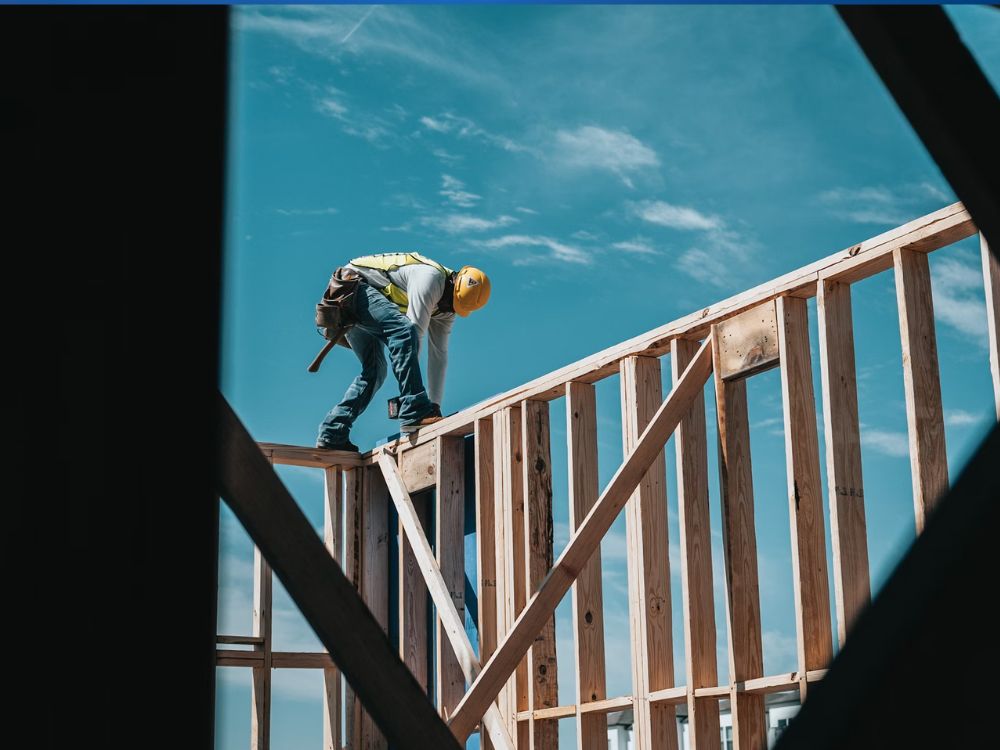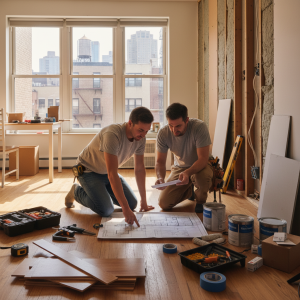Last Updated on October 30, 2025 by teamobn

Building a house presents unique challenges that can discourage first-time property owners. Unlike purchasing a pre-built home, constructing a house from the ground up is a complex process requiring extensive planning and preparation.
Before you begin, take time to review the essential preparation steps before construction to make sure your project starts on solid ground.
In this guide, we’ll share valuable pointers to make your first home-building experience more efficient, manageable, and enjoyable.
Selecting a Builder
When choosing a builder for your home, thorough research is imperative. An effective builder can significantly impact the quality and efficiency of your house construction project.
- Do your due diligence properly and take all the necessary measures to confirm their legitimacy. Check their industry reputation, experience, and previous work. Make sure they are fully licensed to operate, including in your location, and they don’t have any ongoing legal cases against them.
- Even if budget is a concern, refrain from choosing the most affordable builder unless, of course, they ‘tick all the right boxes’.. Remember, your house is possibly the biggest investment you will ever make, so you need to focus on quality work above all else. Opting for the least expensive contractor could mean compromising the quality and durability of your home and even your family’s safety, so make sure to choose wisely.
- Instead of reading client feedback from the builder’s official website, utilize social media and other credible review platforms. If the general feedback is positive and almost all previous clients are satisfied, include the builder in your candidate list. However, if many of the reviews are negative, take it as a red flag and move on.

- Once you have a shortlist of builder candidates, the next step is to meet them, ideally, on-site. Remember, no matter how established or popular the builder is, they may not be a good fit for you. Schedule an appointment to discuss your house construction project, and discuss all essential aspects.
- Ask about their payment schedules, expected timeline, if they’re fully insured, whether they have any available financing options, project management, and other concerns you may have about the construction process. Check if they have built similar homes – especially if your design is unique in some way – for example, on a steep lot, the challenges they’ve encountered when constructing similar homes and their corresponding solutions.
- Before signing any contract, read it thoroughly and clarify points that may be unclear to you. Make sure you have a copy of all documents/contracts to protect yourself in the unfortunate event that your builder fails to uphold their obligations. It is also best if you have a lawyer double-check the contract before signing it.
- Lastly, it is highly essential you maintain open communication with your builder. Communicate your concerns but be professional and respectful at all times. Even if you trust your builder, you need to be fully aware of the progress, including any construction hiccups they encounter.
Planning and Budgeting
Creating a well-structured plan and a realistic budget is essential for successful home construction.
- Aside from planning the technicalities of your house, you must also consider your long-term plans. Will this be your starter or retirement home? How many rooms do you need for your growing family? Will you be working remotely later on? While you can’t predict the inevitability of the future, creating a contingency plan can significantly save you from making multiple renovations.
- Before you begin any groundwork, focus on your budget. Building a house, no matter how small, can be very expensive. Ensure that you are in a strong financial position to take on this significant and life-changing project. Since unforeseen expenditures are common in house construction, your budget must have sufficient wiggle room to cover price increases and delays.
- When creating your house construction budget, learn to balance your wants and needs. For instance, instead of building a patio, it may be more beneficial to install solar panels to help make your future home more energy-efficient.
- Even if you plan to take a house mortgage, it is still important you have cash at hand to accommodate unexpected charges. If you have substantial debt or are financially struggling right now, reconsider your plans, as the last thing you want is for your home to be a source of long-term financial stress.
- In addition to the cost of the land acquisition, your budget should also cover labor, materials, permits, equipment, and other indirect expenditures. This can include insurance, landscaping, utilities installment, design fees, project management expenses, and construction and renovation debris removal costs.

Navigating Permits and Regulations
Understanding the necessary permits and regulations is vital before you begin construction. Each area has specific requirements, and failing to comply can delay your house construction or lead to additional costs. That’s why it’s highly recommended you choose someone local as they’re more familiar with the local building rules and regulations.
Local builders are more experienced with your local weather and climate, reducing unnecessary delays and wasted resources. They also have a more diverse network of suppliers, ensuring that you get high-quality materials at competitive rates.
If you’re constructing a house inside a village, make sure to verify the regulations of your community’s homeowners association. Some common hoa restrictions to be mindful of include landscaping restrictions, exterior design, construction hours, occupancy limits, parking restrictions, and home footprint requirements.
Construction Process
The construction process involves several stages, including site preparation, foundation work, framing, and finishing. To ensure that everything progresses smoothly, remember to stay involved in the entire process. Conduct regular inspections to ensure you address potential issues early on.
However, avoid micromanaging, and allow your builder to complete their work. If you have concerns with how long the project is taking, communicate with your builder but be cordial as much as possible. Manage your expectations well and be realistic with your timeline. Be prepared for possible changes along the way, as house construction is not a linear process.
To help you stay organized and reduce stress during the build, download our free owner-builder sanity checklist — a simple guide to keeping your project (and your peace of mind) on track.
Factors such as supply issues, vendor conflicts, and weather changes can significantly influence the progress of your house project. Instead of dwelling on how long the house construction process is taking, focus your efforts on ways to make your precious home comfortable, safe, and sustainable.
Endnote
While building a house can be exciting, the entire venture can be overwhelming and stressful, particularly for first-timers. With careful planning, the right support, and these essential tips, you can navigate these challenges effectively and create the home of your dreams.
For more actionable guidance, check out our key tips for successful owner-building to ensure your project runs smoothly from start to finish.






